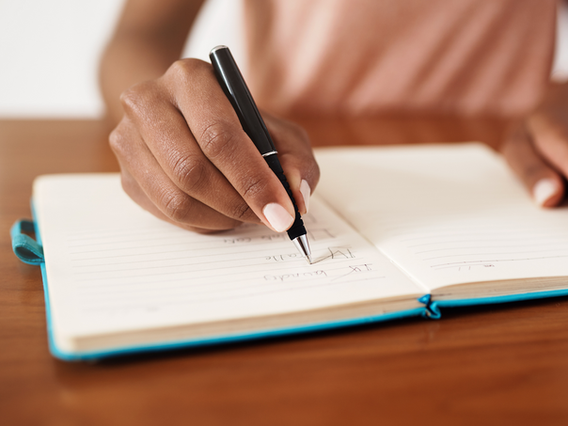DO YOU OVER-APOLOGIZE?
Over-apologizing refers to saying “I’m sorry” when you don’t need to. This could be when you haven’t done anything wrong or you’re taking responsibility for someone else’s mistake or a problem that you didn’t cause or control.
Here are a few examples of over-apologizing:
- The waiter brings you the wrong order and you say, “I’m sorry but this isn’t what I ordered.”
- You approach the receptionists at your doctor’s office by saying, “I’m sorry to bother you. I have a question.”
- While checking out at the supermarket, the cashier accidentally breaks your eggs and sends someone to get another carton for you. You apologize to the shoppers behind you in line, “I’m sorry it’s taking so long.”
- Your spouse makes a racist joke. “I’m sorry. S/he’s not usually like this,” you say to your friends.
- You’re in a meeting and say, “I’m sorry. I didn’t hear you. Can you repeat what you just said?”
WHY WE OVER-APOLOGIZE AND WHY IT IS A PROBLEM
In each of these situations, it’s clear that you haven’t done anything wrong and there’s no need to apologize. So, why do so many of us over-apologize? Below are some possible reasons:
- People-pleasing. You want to be considered nice and polite. You’re overly concerned with what other people think and don’t want to upset or disappoint others.
- Low self-esteem. You think poorly of yourself and as a result, you worry that you’re doing something wrong, being difficult, causing problems, being unreasonable, asking too much.
- Perfectionism. You have such painfully high standards for yourself that you can never live up to them. Therefore, you constantly feel inadequate and feel a need to apologize for every tiny thing that you do imperfectly.
- You feel uncomfortable. Sometimes, we apologize because we feel uncomfortable or insecure and don’t know what to do or say. So, we apologize to try to make ourselves or others feel better.
- You feel responsible for other people’s mistakes or inappropriate behavior. One member of a couple, for example, may apologize for their partner’s behavior (being late or interrupting) as if they did something wrong themselves. This can be an issue of lack of differentiation – you act as a unit instead of as two separate people. Just because you’re dating or married to someone, doesn’t make you responsible for their actions. And taking ownership and apologizing for them, actually enables their problematic behavior because you’ve let them off the hook.
- It’s a bad habit. If you’ve been over-apologizing or listening to others over-apologize for a long time, you may be doing it unconsciously. It’s become an automatic response that you do without thinking about it.
More of a good thing isn’t always better. And this is true of apologizing. Over-apologizing dilutes your apologies when they’re really needed. And over-apologizing can make you look less confident. It can seem as though you’re sorry for everything – for your actions and feelings, for taking up space, for your mere existence. These types of inappropriate apologies are roundabout ways of criticizing ourselves because we’re essentially saying, “I’m wrong” or “I’m to blame” all the time. This doesn’t reflect self-confidence or self-worth.
Over-apologizing is a common problem for those of us with codependent tendencies. It’s a symptom of our low self-esteem, fear of conflicts, and laser-sharp focus on other people’s needs and feelings. We also tend to have poor boundaries, sometimes enmeshed with others, so we’ll accept blame for things we didn’t do or couldn’t control. And we take responsibility for trying to fix or solve other people’s problems. We excuse their behavior as if it’s our own. We feel like everything is our fault – a belief that probably began in childhood. We’re very conscious of being a burden or problem. We’re afraid of rejection and criticism, so we go out of our way to be accommodating.
KNOW WHEN TO APOLOGIZE
Of course, there are times when we all need to apologize. We should apologize when we’ve done something wrong – hurt someone’s feelings, said or done something offensive, been disrespectful, or violated someone’s boundaries.
You do not need to apologize for:
- Things you didn’t do
- Things you can’t control
- Things other adults do
- Asking a question or needing something
- Your appearance
- Your feelings
- Not having all the answers
- Not responding immediately
It’s okay for you to have needs. It’s okay for you to have preferences. It’s okay for you to want something different or have a special request. It’s okay for you to take up space. It’s okay for you to exist.
HOW TO STOP OVER-APOLOGIZING
- Notice what you’re thinking, feeling, and saying. Awareness is the first step in making a change. Just bringing your intention to stop over-apologizing into your consciousness can help. Notice when, why, and with whom you’re over-apologizing. Pay attention to your thoughts and feelings, as well. They can be cues that you’re feeling anxious or afraid or inadequate.
- Question whether an apology is necessary. Did you do something wrong? How bad was it? Are you taking responsibility for someone else’s mistake? Or are you feeling bad (or anxious or ashamed) when you didn’t do anything wrong? If you often think you’ve done something wrong, check out your belief with a trusted friend and try to challenge this idea to see if you’ve really done something wrong or perhaps, you’re expecting too much of yourself.
- Rephrase. Instead of saying I’m sorry, try another phrase. Depending on the situation, you might try:
- Thank you – Thanks for your patience.
- Unfortunately – Unfortunately, this isn’t what I ordered. I asked for no cheese.
- Excuse me – Excuse me, I need to get around you.
- Be more assertive – I have a question.
For many of us, over-apologizing is a bad habit. And like any habit, it takes effort and practice to undo a bad habit and replace it with a new behavior. So, don’t be discouraged if you find that over-apologizing is a hard habit to break.



